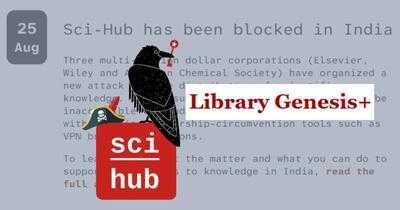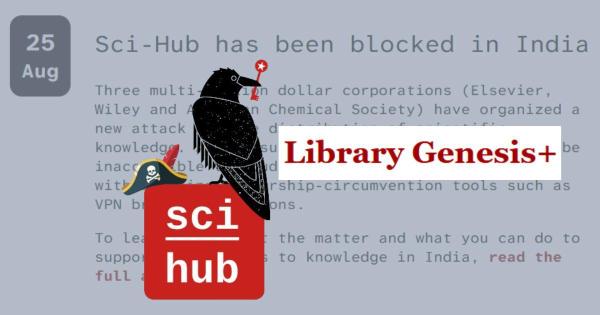

News broke in August 2025 that the Delhi High Court had ordered the banning of websites like Sci-Hub and Libgen. Many Indian academics were incensed, suggesting it would be the death of research in India and saw the ban as an assault on free and equal access to knowledge.
In India, it is common for both teachers and students to ask for e-copies of journals and books in online groups. They rely on someone with institutional access to provide them with copies. This person is usually either studying or teaching abroad, or in one of the very few institutions within India with access to scientific resources.
For many, their teaching and research depend on others’ benevolence in downloading and providing the required materials. For others, Sci-Hub and Libgen, which to an extent represent scaled-up (albeit illegal) forms of this practice, are lifelines.
Institutional access to scientific resources is a major issue in India, and even for premier public institutions, there are limitations. There have been significant funding cuts in higher education. The budget of the Higher Education Funding Agency was reduced from Rs 2,000 crore in 2020-2021 to Rs 1 crore in 2021-2022. The agency provides funds to Higher Education Institutions, and this budget cut is reflected in library budgets and institutional access to research material.
For instance,...
Read more
-
Global praise for Bihar polls: Delegates hail India's 'inspiring' and 'transparent' democracy

-
The Running Man release date, cast and everything you need to know

-
IPO-Bound Pine Labs Nets INR 1,754 Cr From Anchor Investors

-
GB News interrupted for breaking news in yet another humiliating blow for Starmer

-
Culture Secretary Lisa Nandy forced to apologise after giving £130k job to Labour donor
